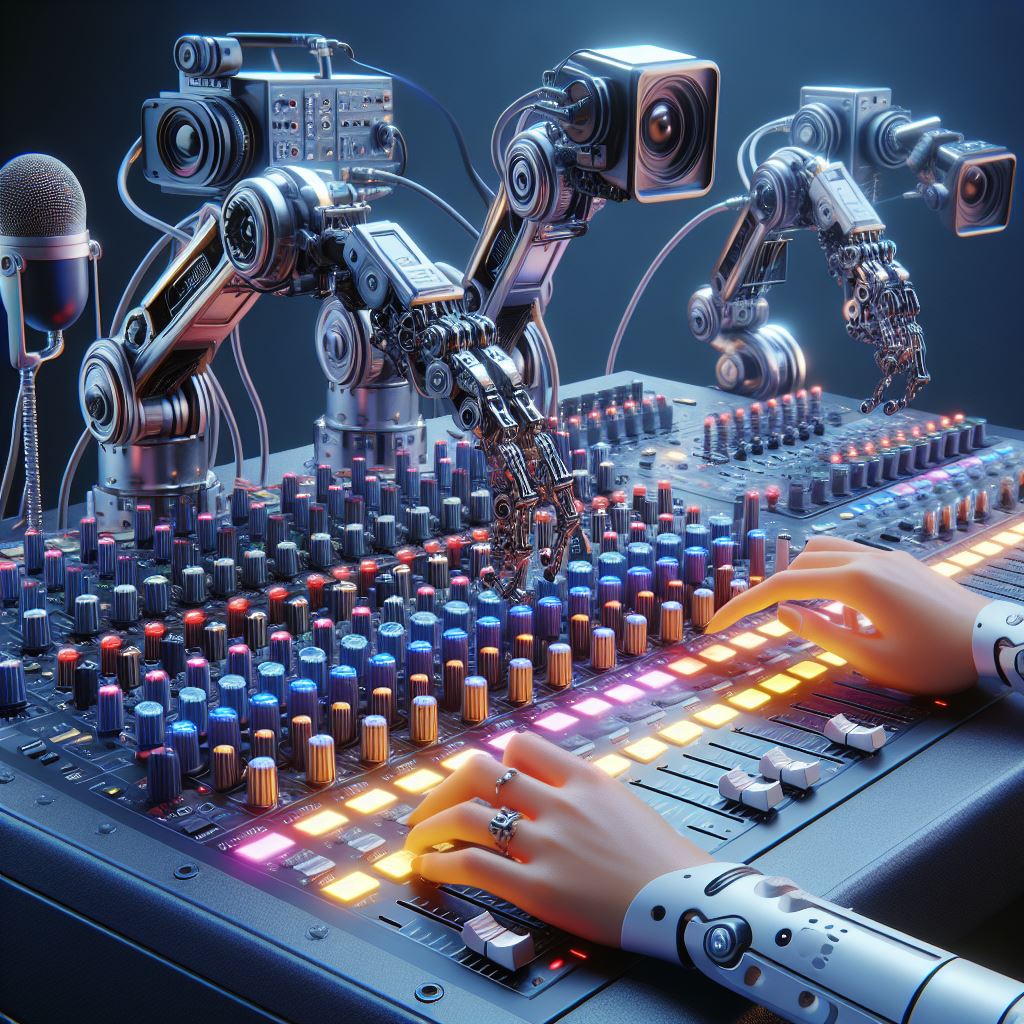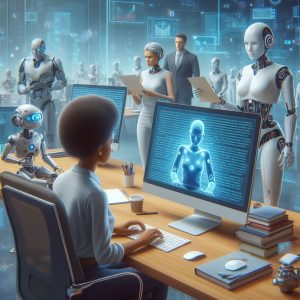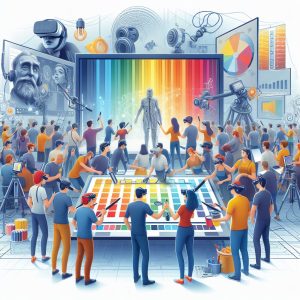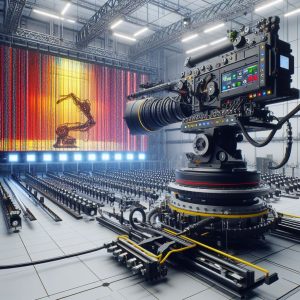The world of filmmaking is constantly evolving, and with it, the role of the sound mixer. While some may worry that automation and AI will eventually replace sound mixers, the truth is that these technologies are more likely to enhance and elevate the role of the sound mixer in cinema.
1. Automation of Repetitive Tasks:
One of the most significant impacts of AI and automation on sound mixing is the automation of repetitive tasks. This includes tasks such as microphone placement, level adjustment, and panning. AI-powered software can analyze the audio environment and automatically adjust these settings, allowing sound mixers to focus on more creative aspects of their work, such as sound design and overall mix balance.
2. Enhanced Sound Quality:
AI algorithms can also be used to enhance the quality of the recorded audio. They can automatically identify and remove noise, reduce distortion, and improve the overall clarity of the sound. This allows sound mixers to achieve better results with less effort, freeing them up to focus on other aspects of their work.
3. Real-Time Mixing:
Another exciting application of AI and automation in sound mixing is real-time mixing. AI-powered software can analyze the audio signals in real-time and make adjustments to the mix on the fly. This allows sound mixers to respond to changes in the scene or performance in real-time, creating a more immersive and dynamic soundscape.
4. Immersive Audio Formats:
The rise of immersive audio formats, such as Dolby Atmos and Auro 3D, has created new challenges for sound mixers. These formats require precise placement of audio objects in a three-dimensional space. AI and automation can assist sound mixers in creating immersive mixes by automatically analyzing the audio and placing objects in the appropriate locations.
5. Collaboration and Efficiency:
AI and automation can also streamline collaboration and improve efficiency in the sound mixing process. AI-powered tools can facilitate communication between sound mixers, editors, and directors, allowing them to share ideas and make changes more easily. Automation can also help with project management and scheduling, ensuring that sound mixing projects stay on track and within budget.
In conclusion, the impact of AI and automation on the role of sound mixers in cinema is likely to be positive. These technologies will enhance the capabilities of sound mixers, allowing them to create more immersive and engaging soundscapes with greater ease and efficiency. While automation may eliminate some routine tasks, it will also free up sound mixers to focus on the creative aspects of their work, ultimately leading to better sound in films.
Title: Navigating the Changing Landscape of Sound Mixing in the Cinema Industry: Dangers, AI Integration, and Adaptation Strategies
Introduction:
The field of sound mixing in the cinema industry has undergone significant transformations in recent years. While technological advancements have opened up new possibilities for sonic storytelling, they have also introduced potential threats to the traditional role of the sound mixer. This blog post explores the dangers associated with sound mixer jobs in the cinema industry, the likelihood of AI replacing them, the potential benefits of AI integration, and strategies for adapting to the changing landscape.
Dangers for Sound Mixer Jobs in the Cinema Industry:
- Automation and AI-Powered Tools:
The rapid development of automation tools and AI-powered technologies poses a significant threat to the job security of sound mixers. Automated processes, such as dialogue replacement and audio cleanup, can streamline workflows and reduce the need for manual intervention. This automation can potentially erode the value and demand for experienced sound mixers.
- Shrinking Budgets and Remote Work:
The increasing pressure on production budgets has led to a decline in the number of dedicated sound mixers employed on film and television projects. Additionally, the rise of remote work and distributed production models has resulted in a decrease in the number of on-set sound mixers.
- Lack of Recognition and Appreciation:
Despite the pivotal role sound mixers play in shaping the overall cinematic experience, their contributions often go unnoticed or underappreciated. This lack of recognition can lead to low morale and diminished job satisfaction among sound mixers.
Possibilities of Job Being Replaced by AI:
The advent of AI raises questions about the potential for machines to replace human sound mixers entirely. While AI algorithms have shown promise in performing certain aspects of sound mixing, such as audio detection and classification, they are currently limited in their ability to replicate the creative and artistic aspects of the craft.
How AI Will Be Used to Help in the Job:
- AI as an Augmentation Tool:
Rather than completely replacing sound mixers, AI is more likely to emerge as a powerful augmentation tool. AI-powered software can assist sound mixers with tasks such as sound effects design, audio editing, and mixing. This can streamline workflows, allowing sound mixers to focus on the more creative and fulfilling aspects of their work.
- Automated Quality Control:
AI can be utilized for automated quality control checks, ensuring that audio files meet industry standards. This can alleviate the burden on sound mixers, allowing them to prioritize creative tasks and avoid repetitive manual labor.
- AI-Generated Soundscapes:
AI algorithms can be trained on vast datasets of sound effects and music to generate unique and contextually relevant soundscapes. This can provide sound mixers with an expanded palette of sonic elements to work with, enhancing the creative possibilities.
How to Adapt to the Changing Landscape:
- Embrace New Technologies:
Sound mixers should embrace emerging technologies and AI tools as valuable assets that can enhance their work. By developing proficiency in these tools, they can stay relevant and competitive in the evolving industry.
- Focus on Creative and Artistic Skills:
With AI handling routine tasks, sound mixers should focus on honing their creative and artistic skills. This includes developing a deep understanding of sound design principles, storytelling techniques, and the art of creating immersive soundscapes.
- Collaborate with AI:
Sound mixers should view AI as a collaborative partner rather than a replacement. By working closely with AI algorithms, they can explore new creative avenues and achieve exceptional sonic results.
- Pursue Continuing Education:
Continuous learning is essential for sound mixers to stay abreast of technological advancements and industry trends. Workshops, online courses, and industry events can help them acquire new skills and knowledge.
Conclusion:
The cinema industry is undergoing a transformative phase, with AI playing an increasingly prominent role. While there are potential dangers associated with these changes, sound mixers have the opportunity to adapt and thrive in this evolving landscape. By embracing new technologies, focusing on creative artistry, and collaborating with AI, sound mixers can continue to play a vital role in crafting unforgettable sonic experiences for audiences worldwide.



